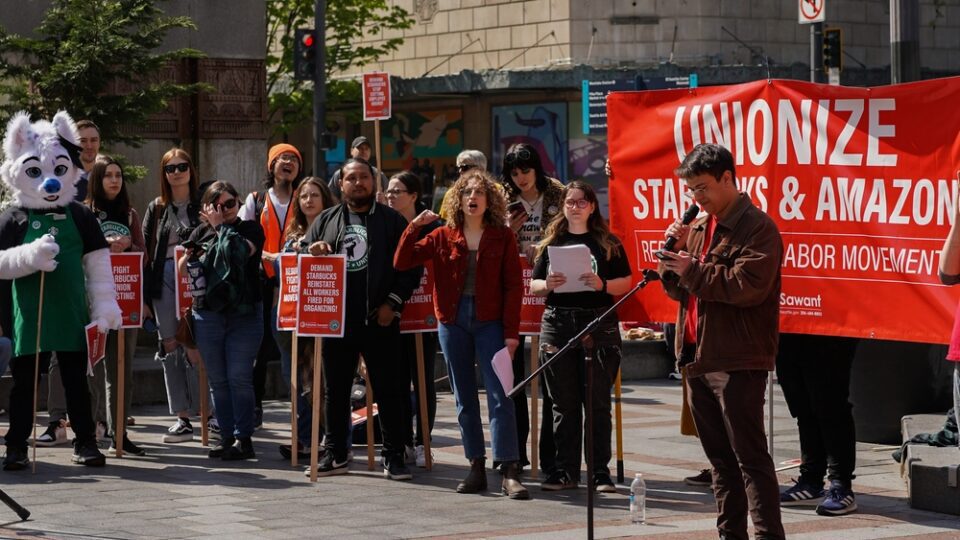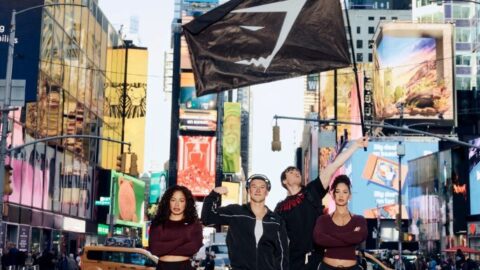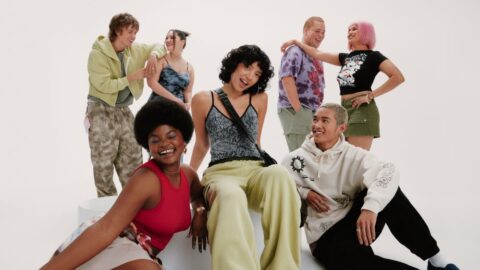While only a small number of retail stores have unionized, the growing popularity of the movement may herald of what’s to come. More than two-thirds (68%) of Americans approve of unions, the highest level in half a century, according to a Gallup poll. Overall union participation has remained steady in the past several years, but positive perception of unions is steadily growing from its nadir in the late 2000s.
This is perhaps most visible in retail, where more than 220 Starbucks stores have successfully unionized and more continue to cast ballots, while retailers including Apple and Trader Joe’s are seeing their own smaller (so far) pushes. While these represent just a fraction of retail’s total footprint, the labor movement in these initial stores represents how frontline retail work has evolved since the pandemic turned the industry on its head.
“A lot of workers who worked in front lines during the pandemic saw their jobs getting more difficult, more stressful and in many cases more dangerous, and they felt that they weren’t adequately rewarded working for companies like Amazon and Starbucks that made billions of dollars in additional profits during the pandemic,” said John Logan, Professor and Chair of the Labor and Employment Studies Department at San Francisco State University. “In many cases, they weren’t treated with respect. The union message is that you need to have an independent voice — you need to have a seat at the bargaining table, so to speak — in order to be treated with respect at work. I think that’s resonating more with people who worked through the pandemic.”
While the pandemic has been a major factor in the labor push, it’s not the only reason for the recent surge in union interest. Retail operations have become more complicated for store associates as they play bigger roles in tasks ranging from customer service to fulfillment, which has combined with other pressures to affect both retailers and associates.
“These have definitely been factors, since retailers, like every other industry, struggled with how to constantly adjust to meet CDC, state and local guidelines — most of which were constantly changing,” said Nick Kalm, Founder and CEO of Reputation Partners in an interview with Retail TouchPoints. “But retailers have also been challenged by short-staffing and higher (some would say unreasonable) expectations they are choosing to, or have, put on employees in terms of complexity, number and pace of job tasks. This has been one of the little-told stories of this new labor movement.”
Logan also noted that the youngest generations, those just entering the workforce, are very different from their elders. They’ve been politicized by the Black Lives Matter movement and Bernie Sanders’ presidential campaign, have massive student loans and are facing rapid inflation while earning comparatively low wages. Add in previously unheard-of levels of media interest in the labor movement, and the pieces are in place for the current surge in union interest.
Starbucks Stands at the Center of the Union Movement
Labor’s biggest retail success story has been Starbucks. Its workers’ organization efforts began in Buffalo, N.Y. in August 2021. The union, Starbucks Workers United, doesn’t see its actions as antagonistic, but rather as a way for frontline workers to apply their knowledge to improve operations at stores while bettering their own conditions.
“We are doing this because we love Starbucks and want to make Starbucks a better company,” said a Starbucks Workers United spokesperson in an interview with Retail TouchPoints. “Many of us have worked at Starbucks for years, and some of us decades. We know our stores the best and know how to improve them. By unionizing, our goal is to make Starbucks a better place to work for employees and a better place for customers to visit. We are hoping to bargain a contract with Starbucks that not only changes what it means to work as a barista at Starbucks, but change what it means to work in the restaurant-industry more broadly. Throughout the pandemic, we were called ‘essential workers,’ yet we weren’t given the wages, benefits or respect that being ‘essential’ would denote.”
Starbucks is clearly not in favor of the union, but it hasn’t expressed outright hostility for the organization. Instead, the retailer has focused on the gap a union places between frontline workers and corporate, including how that can impact the introduction of new benefits.
“We are listening and learning from the partners in these stores as we always do across the country,” said a Starbucks spokesperson in an interview with Retail TouchPoints. “From the beginning, we’ve been clear in our belief that we are better together as partners, without a union between us, and that conviction has not changed. We respect our partner’s right to organize and are committed to following the NLRB [National Labor Relations Board] process.”
Despite the surface cordiality, there have been back-and-forth accusations between Starbucks Workers United and Starbucks. The union noted that the NLRB has issued official complaints against Starbucks, and the union has alleged that the retailer closed down unionized stores and fired union leaders, among other actions.
Starbucks also has filed complaints against the union, most recently asking the NLRB to suspend mail-in ballot union elections due to alleged misconduct in the voting process, according to CNBC. The retailer has reportedly stated that NLRB officials allegedly coordinated with union agents to arrange in-person voting at NLRB offices during mail-in ballot elections.
Retailers Must be Prepared to Tackle Internal Unionization
Different retailers will need to take different approaches to how they handle any unionization efforts within their own ranks. Organizing workers frequently feel they aren’t being treated properly by their employer, and retailers should understand how their employees see the business from every angle if they want to understand how a potential union will approach associates. That requires asking tough questions about the retailer’s business model and operations.
“First, they have to take a hard look at every aspect of their operations and examine how it impacts employee recruitment, retention and morale,” said Reputation Partners’ Kalm. “Do we have too many stores? Are we able to adequately staff our stores for the hours we want or need to be open? Do we give employees control over the number of hours they work and their schedules? Have we added tasks or complexity to employees’ jobs past a point they can handle? Do we give employees a strong voice in how we run the operation? And, finally, do we provide them with adequate pay and benefits?”
Kalm noted that pay and benefit concerns came last in his list for a reason. “Of course it’s important, especially in these inflationary times,” he said. “But compensation and benefits are receiving outsized attention and priority. If retailers look at and address all of the factors above, they will go a long way in addressing the factors that lead to unionization.”
He also believes that retailers who want to avoid unionization need to be open about their opinion with both the public and their associates. They should communicate what they see as the negative effects of unions with new recruits (such as how unionizing means employees are no longer treated as individuals or how difficult it is to get rid of a union once it’s voted in), while avoiding giving “mealy-mouthed” statements about whether they are pro- or anti-union.
Reconciling a Progressive Image With Anti-Union Attitudes
Companies with reputations for being politically progressive should adopt neutrality toward unions or even welcome them or else risk backlash. “It’s not just Starbucks — look at Apple, REI, Whole Foods, Trader Joe’s and more,” said Kalm. “They all struggle to develop and articulate anti-union messaging with their everyday progressive values messaging.”
Somewhat ironically, these are the kinds of companies that are the most likely to face unionization pushes. San Francisco State University’s Logan noted that the current slate of unionizing retailers, including Starbucks, Apple and REI, have values that closely align with the kind of workers who are most likely to be pro-union.
“[These retailers] support Black Lives Matter, they support LGBTQ rights and they support environmental justice,” said Logan. “Because of that they attract a particular type of workers who are attracted to those values, and these are the types of workers who support unions. It sounds overly simplistic, but in essence Starbucks has hired the kind of self-confident, independent-minded barista who has given this union campaign its dynamism.”
Despite the current surge, other unionization “movements” have failed to achieve momentum. When Amazon warehouse workers in Alabama held a unionization vote in early 2021, it seemed to mark a turning point. But that vote ultimately failed, and while other warehouses (notably in Staten Island, N.Y.) have unionized, they haven’t provided the elusive “tipping point” that would lead to a more widespread movement.
Whatever the outcome of current labor efforts, it’s clear that the retail landscape has been, and will continue to be, affected. Logan stated that he expects to see a “positive legacy for unions from this moment and this organizing wave,” even if the current unions fade away. Others will learn from their tactics and take inspiration from their successes.













